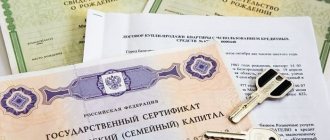Features of providing such a loan
The borrower can pledge the apartment or house he is buying, or the one he already owns . The main thing is that the loan amount does not exceed the value of the property for which the mortgage is issued.
When applying for a mortgage secured by real estate, you must:
- assess the value of real estate from a professional appraiser;
- insure the life and health of the mortgagor;
- insure the apartment against major risks (fire, flooding by neighbors, etc.).
When registering a mortgage, the property owner undertakes to keep the mortgage in order, periodically carry out routine repairs and, most importantly, insure the apartment annually. The lack of insurance for borrowers of Sberbank of the Russian Federation may result in a requirement to repay the entire amount of debt ahead of schedule, that is, early termination of the contract.
When taking out a mortgage, the apartment remains the property of the borrower. After repaying the mortgage loan, he has the right to remove the encumbrance from it (clear the registration entry about the mortgage in the Unified State Register of Real Estate). After paying off the registration entry, you can receive an extended extract from the register, which will reflect the fact that there is no encumbrance.
If a loan is taken out against existing real estate, the purchased apartment will be free of encumbrances. Such real estate can be disposed of at your own discretion and without approval from the bank.
Important! To apply for a mortgage, you will need to first assess the value of the property. The cost of appraiser services ranges from 2,500-10,000 rubles.
Mortgage programs of the Security Council of the Russian Federation
Sberbank is one of the leaders in mortgage lending in the Russian Federation. The bank offers a variety of programs for mortgage borrowers, including government support for young families, loans using maternity capital, and military mortgages. Non-targeted lending programs secured by existing real estate, which do not require a down payment, are also popular. You will find a detailed overview of Sberbank’s mortgage programs, interest rates, as well as information about their advantages and pitfalls in this article.
Basic conditions of a mortgage secured by existing real estate:
- loan term – up to 20 years;
- currency - ruble;
- loan amount – from 500 thousand to 10 million rubles (or up to 60% of the cost of the apartment being pledged);
- down payment – from 0%;
- from 12% per annum.
The bank finances the purchase of finished and under construction housing, and not only apartments, but also country houses. Mortgages secured by existing real estate are provided for a period of up to 20 years and for a maximum amount of 10 million rubles. Any real estate is taken as collateral, including a plot of land without buildings, a garage and other objects. The loan amount can reach 70-80% of the value of the property.
A loan secured by existing real estate from Sberbank of the Russian Federation can be issued without a down payment. If you take out a mortgage for the apartment you are buying, you will need to pay at least 15% of its cost yourself. We talked in more detail about the features of the down payment on a mortgage in SB here.
What kind of housing is suitable as collateral?
Serious requirements are put forward for real estate that is pledged. This must be an apartment, house, or plot free of collateral or arrest that can be sold at any time. Apartments that are in the emergency fund, rooms in dormitories, office housing and other illiquid objects are not taken as collateral.
Banks are also wary of Khrushchev-era apartments, as well as houses built before 1950. If a land plot is pledged, then the purpose of the land must include individual housing construction. Banks practically do not accept wooden houses as collateral, especially if they are dilapidated. Garages (if they are officially registered) and land plots without buildings are considered as collateral.
How to purchase mortgaged real estate?
Buying a property that is mortgaged can be a profitable deal. An urgent need for money may prompt a real estate seller to make serious concessions on the price. On the other hand, the property is encumbered with the rights of third parties - a pledge, which makes it necessary for the buyer to exercise some caution when making a transaction.
The influence of collateral on the proposed transaction
The property to be purchased may be pledged to the bank or any individual or legal entity.
The presence of collateral means the following:
- The owner of the property has certain obligations to a bank or other creditor (most often a loan) or the owner has guaranteed his property for the obligations of a third party.
- The mortgagor cannot dispose of the property without the consent of the person to whom he owes it (the mortgagee).
- In case of default, the pledgee has the right to satisfy his claims by selling the pledged property, primarily to other creditors, including you.
Options for purchasing mortgaged real estate
Typically, two options are used in transactions with mortgaged property:
- In the first case, the ownership of the pledged object without termination of the pledge with the consent of the pledge holder is transferred to the buyer. Obligations secured by collateral can also be transferred to him.
- In the second case, the obligation secured by the pledge is extinguished, and only after that the real estate transaction is completed. In the literal sense, such a transaction is not the acquisition of pledged property, since the pledge had already ceased by the time it was completed.
Replacement of the owner of the pledged property
In the first case, a transaction with the pledged property is possible only with the written consent of the pledgee. Banks are very reluctant to undertake this procedure, since any transaction with pledged property adds risks to its safe placement as collateral. Banks also agree to replace the debtor on a secured loan only under certain conditions. The fact is that when deciding to issue a loan, the bank evaluates the solvency of the borrower and the ability of the pledged property to ensure repayment of the loan. The presence of collateral in the form of expensive real estate may not be a sufficient condition, since the bank is primarily interested in the borrower’s ability to repay the loan using their income, and not through the sale of collateral.
If the solvency of the purchaser of real estate suits the mortgagee, then such a transaction in terms of risks will be quite safe for the buyer, since the mortgagee, while ensuring his interests, will also take care of its legal purity.
When making payments between parties to a transaction, the following options are possible:
- The buyer assumes all payments on the loan without paying anything extra to the seller. The latter's interest here is to free himself from an unsustainable debt load, with the knowledge that the property will most likely otherwise be lost to him.
- In addition to transferring the debt, the buyer makes the agreed additional payment to the seller.
Transaction with preliminary release of real estate from collateral
In most cases, in order to complete a transaction with pledged property, the owner must fully repay his debt (or the debt of the person for whom he has guaranteed his property). After this, the pledge is terminated and there are no obstacles to completing the transaction. The difficulty is that the money of the future buyer is most often used to pay off the debt. And this poses certain risks for the latter.
In order to reduce risks, you must adhere to the following:
- Money to pay off the debt must be given as a deposit. If the transaction does not take place, the real estate seller will be obliged to return double the amount of the deposit received, which will motivate him to comply with the agreement.
- Before issuing the deposit, the buyer must meet with the mortgagee (his representative). If the property is mortgaged to a bank, it is recommended that you and the debtor visit the bank manager who is supervising his loan (Due to bank secrecy, the buyer will not receive such information on his own). In this case, it is necessary to find out the exact amount of debt, including remuneration, penalties and other penalties, the presence of delays or other violation of obligations. Providing a bank certificate by the debtor about the amount of debt does not always provide a complete picture. It is also advisable to make sure that an extrajudicial or judicial procedure for the sale of collateral is not applied to the debtor, and that the property is not seized.
- Obtain from the Public Service Center (PSC) at the location of the property a certificate of registered rights in order to ensure that there are no other encumbrances on the property.
- As a deposit, it is necessary to give exactly the amount that is necessary to repay the debt and terminate the encumbrance. In order to make sure that the money gets to its destination, it is recommended that it be transferred not to the seller, but directly to the pledge holder (to the bank's cash desk or to the lender) at the time of signing the deposit agreement.
- Registration of termination of a pledge takes 5 days and is carried out upon application of the pledgee.
- Only after registering the termination of the pledge can a purchase and sale agreement be concluded and final payment made.
Main risks in transactions with pledged property
- The seller, without intending to pay off the debt, spends the money on other purposes or absconds with the money. In the future, the transaction cannot be completed, since the obligation has not been repaid and the pledge has not been removed. This can happen if the buyer does not control the transfer of money to the lender.
- The amount that the buyer is willing to pay for the property is not enough to release it from the mortgage due to accumulated penalties. This becomes clear after the principal amount has been paid, and it is impossible to demand back from the lender. Such cases arise due to the buyer’s incomplete awareness of all existing obligations of the seller.
Can the seller independently sell the mortgaged property?
The seller has the right to independently search for a buyer, negotiate a future transaction and its terms (price, payment procedure). However, it must be taken into account that in accordance with paragraph 2 of Article 315 of the Civil Code of the Republic of Kazakhstan (General Part), the pledgor has the right to alienate the pledged item, transfer it for rent or free use to another person, or otherwise dispose of it only with the consent of the pledgee. That is, without the bank’s consent, the transaction itself is not possible.
Who is the owner of the mortgaged property: the borrower or the bank?
A pledge does not mean a transfer of ownership to the pledgee. In accordance with Article 5 of the Law “On State Registration of Rights to Real Estate,” a pledge is an encumbrance on the right to real estate, which is subject to state registration.
Typically, the owner has the right of the subject to own, use and dispose of the property belonging to him at his own discretion. If a pledge is registered, the owner, while remaining the owner, loses the right to dispose of his property.
The bank (or other mortgagee), in turn, does not become the owner of the mortgaged property, and can sell this property at auction only if the borrower has significantly violated its obligations to repay the debt.
Additional recommendations
- Do not move in or make repairs to a property that is not yet registered in your name.
- When paying attention to the specifics of transactions complicated by collateral, do not forget about the usually required formalities. Thus, despite the issuance of a deposit and repayment of the debt, the transaction may be jeopardized by the lack of consent of the seller’s spouse. In this case, a refund will be difficult. The same can happen due to the presence of arrest at the site due to claims of third parties.
Bank requirements for the borrower
To obtain a mortgage loan, you must have a good credit history and a stable official income. The borrower will need to provide a package of documents confirming his level of earnings, registration and family composition. Requirements for the borrower:
- age from 21 years;
- official place of work;
- citizenship of the Russian Federation;
- work experience of at least one year;
- family income is sufficient to repay loan payments;
- the presence of real estate on which a mortgage can be issued.
Requirements for real estate purchased with a mortgage:
- legal purity of title documents;
- the presence of all communications in the apartment, house;
- absence of illegal redevelopment;
- the age of the house is from 1950;
- absence of arrest, pledge, disputes about real estate with heirs.
The main requirement for the borrower: the size of his income. The total family budget should more than cover loan payments, insurance and bank commissions. If there is not enough money, the bank may offer the borrower to take a guarantor for the loan or provide additional collateral. It is also possible to refuse to provide a loan if the level of earnings is low and the real estate is illiquid.
The bank primarily evaluates the apartment that is taken as collateral from the point of view of liquidity. There should also be no forecasts of a fall in the price of this property in the appraiser's report.
You will find more information about the requirements for the borrower and real estate for a mortgage from Sberbank in a separate article.
Important! The borrower takes out a mortgage for a long term - up to 20-30 years. During this time, he will not be able to dispose of the property without the permission of the mortgage bank.
Procedure for obtaining a mortgage loan
The procedure for obtaining a mortgage loan in SB takes no more than 1-2 weeks.
- First, you will need to fill out and submit an application for a loan to the bank, which will indicate the borrower’s income, the loan amount, as well as all other parameters of the future loan agreement. Read about whether you can apply for a mortgage in SB online and how to do it here.
- The bank will assess the client's solvency, check his credit history and issue preliminary consent to issue a loan.
You will need:
- Estimate the cost of the apartment.
- Provide the bank with all documents to obtain a loan.
- Sign the loan agreement.
- Take out a mortgage, register a mortgage and insure the property.
- Get a loan and buy an apartment.
The list of documents required to apply for a loan includes:
- certificate from work or 3-NDFL;
- documents of title to the apartment that is being pledged (sale and purchase agreement, donation agreement, certificate of ownership, etc.).
The borrower fills out a very detailed questionnaire, which indicates all his expenses and income, family composition, number of minor children, information about other loans and much more. Among the documents on the pledge there should also be a technical plan of the BTI and an extended extract from the Unified State Register of Real Estate.
Benefits of lending
- Quick receipt of funds.
It takes from 1 business day to complete the documents, which is a very important point for many people who need money urgently. - Minimum requirements.
Almost anyone can become a client of the company, from the unemployed to people with a hopelessly damaged credit history.
- Flexible conditions and complete security.
Contact us and you will receive a safe and legal loan on convenient terms.
offers profitable solutions in the field of consumer loans - leave a request on the website and tomorrow you can get a loan at a low interest rate for a large amount secured by an apartment with an encumbrance.
How to properly issue a mortgage?
The Sberbank of the Russian Federation mortgage is an approved application form that must be filled out. It contains information about the owner of the property (mortgagor), as well as the collateral itself. The clauses of the mortgage are provided for by the Law “On Mortgage” (Article 14).
Items must be indicated in the mortgage:
- information about the pledgor (passport details, year of birth);
- details of the mortgagee (bank details);
- subject of the mortgage (location of the apartment, description, cadastral number);
- information about encumbrances;
- information about the mortgage amount and interest rate;
- monetary valuation of the subject of the mortgage;
- indication of the term for payment of the loan amount;
- information about the date of the mortgage and its number.
Registration of a mortgage is carried out simultaneously with the registration of ownership. To do this, the mortgage loan agreement, documents for the apartment and the mortgage are submitted to Rosreestr.
After registration, the mortgage remains with the bank. It is returned to the borrower only after the loan is repaid or in the event of an early sale of the property, for example, due to regular non-payments.
Important! If the mortgage does not comply with the loan agreement, according to the law, the contents of the mortgage are considered correct.
List of required documents
To apply for a mortgage you need:
- passport of the mortgagor;
- real estate valuation act;
- extended extract from the Unified State Register of Real Estate;
- BTI registration certificate;
- title documents for the apartment;
- spouse's consent to the transaction.
The original permission of the guardianship authorities to pledge real estate is also important if one of the owners of the apartment is a minor.
Usually the mortgage is signed before the loan is taken out, so a loan agreement can be added to these documents. For registration, documents defining the terms of the mortgage may be attached to the mortgage.
The mortgage registration period may take up to a month.
How much does the procedure cost?
The mortgage is issued free of charge. It does not require notarization and associated costs. Payment is required only in the form of a state duty, which is paid when registering a mortgage with Rosreestr. State duty amount:
- 1 thousand rubles for individuals;
- 4 thousand rubles for companies.
Additionally, you will need to obtain the notarized consent of the wife (husband) to draw up a pledge agreement, which costs from 1.5 thousand rubles.
Registration deadlines
The mortgage is issued quite quickly - in 1 day. It is usually signed on the day the loan agreement is signed. The mortgage must be submitted to Rosreestr simultaneously with the documents for registration of the sale and purchase.
Where is the paper stored?
The mortgage is kept in Sberbank of the Russian Federation. When registering, a copy is immediately made and remains in Rosreestr. The borrower may ask for a simple photocopy of the document.
What does it mean to pledge an apartment with an encumbrance?
The money is issued after registration of the loan agreement, which is submitted to Rosreestr by the owner of the property and a representative of the lender’s company, along with title documents. Upon completion, you receive documents confirming your property, but they contain a clause about the encumbrance of the apartment under the loan - this means that you are still the legal owners, but until the entire debt is paid off, you will not be able to sell, donate or mortgage the property. All our clients are confident that their housing is safe, as they receive official confirmation of their property rights after registration.
How to collect a mortgage after paying off the debt?
After repaying the loan, you can pick up the mortgage from Sberbank of the Russian Federation. The deadline for repayment of the mortgage is usually set within a month. If the mortgagee sold the mortgage to another bank, then it will have to be taken back from the legal successor.
Conditions for receiving
There is only one condition for repayment of the mortgage: full repayment of the loan. It can happen strictly within the terms specified in the contract or ahead of schedule. The presence of a mortgage with the bank or the absence of a note on it about the repayment of the loan indicates, unless otherwise proven, that this obligation has not been fulfilled (according to Article 17 of the Law “On Mortgage”).
How to get a document if the bank does not give it back?
If the bank does not release the mortgage after repaying the loan, the mortgagor has the right to go to court.
If this happened due to the loss of the document, then the creditor is obliged to issue a duplicate and the bank has no right to refuse the client. Before going to court, you can submit a written statement to the head of the branch or write a complaint to the Bank of Russia.
Without a mortgage, it will be impossible to get rid of the encumbrance, so it is very important to get the bank to return the document. Upon fulfillment of the obligation, the creditor bank is obliged to immediately transfer the mortgage to the mortgagor with a note indicating that the obligation has been fulfilled in full. Next, Rosreestr cancels the mortgage by placing a “repaid” stamp on the front side.
Transaction of purchasing an apartment as collateral
The buyer must be notified of the existence of a deposit. After which he should find out the terms of the auction set for him by the owner and the bank (see Sberbank Mortgage). If the offer is not satisfactory, it is advisable to refuse such an acquisition.
The purchaser of real estate is required to comply with formalities in such a way that the bona fides of the position are not in doubt.
The bank is not responsible for drawing up an agreement between the parties; it only coordinates the execution of collateral obligations. Therefore, it is useful to notarize the agreement, since the expert opinion of a notary will identify shortcomings in the procedure, as well as give the agreement additional legal force.
If the case goes to court, the notary will act on the plaintiff’s side, confirming the legality and legality of the transaction certified by him.
For the same reason, it is worth contacting a real estate or law company, where competent employees will review possible risks and take them into account when drawing up a contract.
Advantages of contacting a realtor:
- In his experience, provided such situations are resolved. For additional documentation verification.
- The ability to foresee the development of events in accordance with certain provisions included in the contract.
- The additional legal force of the acquisition procedure is based on the guarantee of the purity of the transaction provided by real estate companies.
- Monitor and inspect the process of transferring money by the buyer.
- If difficulties arise that require recourse to arbitration, the realtor will also act on the side of the plaintiff.
First, a preliminary agreement is drawn up, which specifies the parameters of the apartment, the conditions for drawing up the deed of purchase and the transfer of property rights to the purchaser.
An advance payment is made based on the preliminary purchase and sale agreement.
At this point, citizens need to discuss the issue of the existence of an encumbrance and note in the preliminary contract a positive decision made by both parties regarding this fact. Here you also need to select the conditions for transferring the right to the premises.
The purchase methods depend on the balance of the outstanding debt, which allows the cost of the apartment to exceed, or may remain minimal.
If the balance exceeds the cost, the buyer will need to deposit the amount specified in the agreement into the bank, and the repayment of the remaining debt on the part of the seller should be monitored. The repayment algorithm fits into the terms of the bill of sale, in addition it is worth making a note about the debtor’s responsibility for the terms of settlement with the bank.
In the provision on termination of the contract, it would not be amiss to include the same conditions or refer to the paragraph where they are formulated.
The buyer is allowed to take precautions and protect himself from unexpected troubles.
Therefore, such a requirement when drawing up a contract is appropriate (see Checking an apartment upon purchase).
If the balance is small, the money is transferred to:
- seller;
- jar.
It is convenient to use a safe deposit box by placing the money intended to pay for investments and allocated to the seller into two different departments.
After completing the documentation, the funds will be sent to their intended destination.
At the discretion of the parties, the mortgaged apartment is transferred along with the encumbrance. The investor reissues the loan to the acquirer, and the previous participant leaves the process.
In this case, the mortgage obligation and the amount transferred to the seller are calculated based on the outstanding balance of the investment. These conditions are calculated in advance, before drawing up a preliminary contract and transferring an advance payment for housing.
After drawing up and signing the agreement by the parties and paying the investor, the procedure for purchasing an apartment as collateral must be registered. This requirement is universal for all processes occurring in the real estate market.
Registration of rights takes place in Rosreestr at the location of the property.








